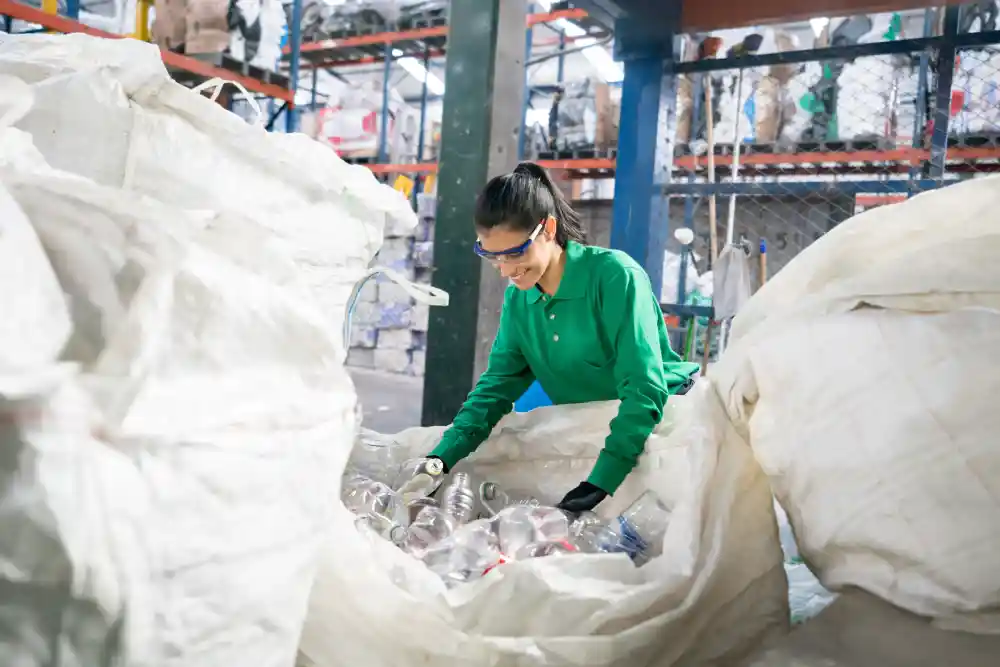
The statistics on plastics and recycling in Canada are startling. According to a study1, on average, only 9% of plastics generated by various sectors is recycled, 86% is dumped in landfills, and the rest is either incinerated or leaked into the environment. In the process, $7.8 billion, based on the value of raw materials in 2016, is getting lost.
This may come as a surprise to an average person, diligently placing every disposed plastic item with the ‘recyclable’ symbol into a blue bin. While plastic bottles and food packaging containers tend to have much higher recycling rates than the average, why do other ’recyclable’ items lag behind?
Looking more closely at the issue, one quickly realizes there is little clarity on what recycling and recyclability really mean. Currently used definitions refer to various activities that make up the recycling value chain – from collection, transportation, handling, and storing to dismantling, sorting, separating, shredding, processing, or remanufacturing. It is not clear, though, at which step a product can be considered recycled and what the measurable – and comparable – outcomes of the process are.
This leads to policymakers, manufacturers, recyclers, and other stakeholders often using different terminology and adhering to different processes and guidelines, which can cause confusion as materials intended for recycling often move from one jurisdiction to another. The lack of definitions also means that as regulators and governments start to establish recycling targets and policies to reduce plastic waste, measuring and reporting of recycling rates cannot be accurate.
And the challenges do not end there. Without standardized, traceable, and verifiable information on materials a ‘recyclable’ product is made of, a recycler may not be able to select a proper recycling method. That can mean that plastics collected for recycling and transported to a sorting facility will still end up in the landfill, wasting even more resources in the process.
The benefits of establishing common definitions and frameworks for recycling of plastics are significant. Standardized definitions will allow various stakeholders from across the supply chain to consistently measure, track, and monitor the circularity of plastics, from plastic waste collection to reuse of plastics in manufacturing new products. Data obtained through this process will make it possible to identify the gaps between our data reality and the data potential and support the development of global baseline measurements. Ultimately, consistent and transparent data can drive sound decision-making in product manufacturing and packaging and help the resource recovery and waste management sector determine collection, sorting, and supply chain design.
CSA Group research confirmed the lack of consensus on definitions for recycling as one of the barriers to moving from the linear “take-make-waste” model towards a circular economy for all materials and products in Canada. Leveraging this work, CSA Group has established a new national Technical Committee (TC) for Circular Plastic Waste Management, made up of a balanced group of volunteer experts representing various stakeholder groups from the plastic value chain. CSA Group has also established a new Oversight Task Force (OTF) representing diverse perspectives and expertise to support and inform the development of this important standard, including organizations such as the Canada Plastics Pact (CPP).
In 2023, this TC and OTF started working on a new national standard for setting a common definition of recycling of plastics, The new standard aims to provide a shared sense of certainty as organizations report on their activities toward reaching Canada’s net zero plastic waste goals. The publication of the new standard CSA R117, Plastics recycling: Definitions, reporting, and measuring, is anticipated in late 2024.
CSA Group, CPP, and Circular Economy Leadership Canada (CELC) continue to collaborate on plastics management, streamlined recycling practices, data management and reporting initiatives, and resource recovery efforts to support circularity and waste management in Canada.
Find out more about CSA Group standards and research supporting circularity through value retention and waste reduction strategies.
Join our mailing list